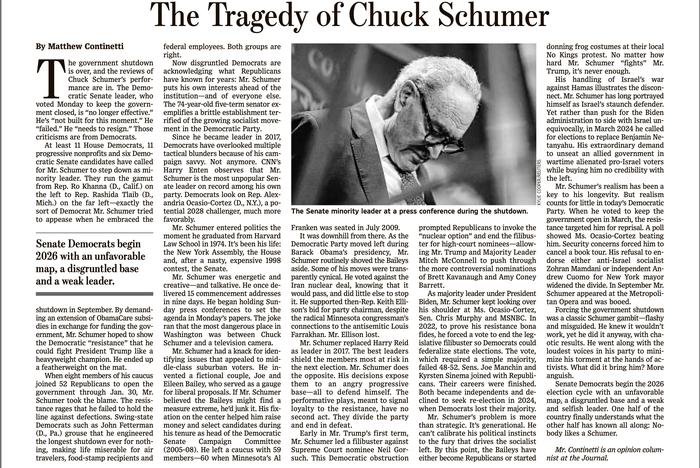"The worst class ever": that's how Nathan Pusey, Harvard's then-president, described my undergraduate cohort of 1971.
With a half century's leisure to contemplate that bitter judgment, I've concluded that he was just about right. Of course, one can't be sure, as no one can know all of Harvard's 385 graduating classes. I can assert, however, that ours was not just feckless in college – what Pusey observed and condemned – but in the fifty years since, when it actively joined in the degradation of American higher education and culture.
 The Adams House swimming pool during its co-ed nude years. |
These steps transformed the university from an institution encouraging free inquiry into one seeking to inculcate a message. Of innumerable examples (such as just 1 percent of the faculty identifying as conservative), take the fall of Larry Summers. Many factors led to his abrupt departure as Harvard's president, but central was his audacity to speculate, however cautiously, in a January 2005 talk on "Diversifying the Science & Engineering Workforce," that "issues of intrinsic aptitude" may help explain the relative dearth of women in top positions in the sciences. This mild conjecture prompted a faculty revolt that forced Summers' resignation. So much for free inquiry and the search for truth, or Veritas in Latin.
Speaking of Veritas, that is the bitterly ironic title of a book about Karen L. King, Hollis Professor of Divinity (the oldest endowed chair in the United States) at Harvard. It establishes how, blinded by her ideological fervor, the renowned professor fell for a blatant forgery, bringing shame on herself and disgrace on Harvard.
 Lingering further on the topic of Veritas: Christi Gloriam ("For the glory of Christ") served as Harvard's motto during its first two centuries. To adopt to different times, that was changed to the secular Veritas in 1836. This motto now again being woefully outdated, it urgently needs to be replaced. Our class of '71 should propose Propaganda. This Latin term has several advantages: it conveniently dates to 1622, or just before Harvard's founding in 1636; it requires no translation into English; and it precisely captures Harvard's new spirit which our class bumptiously promotes.
Lingering further on the topic of Veritas: Christi Gloriam ("For the glory of Christ") served as Harvard's motto during its first two centuries. To adopt to different times, that was changed to the secular Veritas in 1836. This motto now again being woefully outdated, it urgently needs to be replaced. Our class of '71 should propose Propaganda. This Latin term has several advantages: it conveniently dates to 1622, or just before Harvard's founding in 1636; it requires no translation into English; and it precisely captures Harvard's new spirit which our class bumptiously promotes.
We were among the last to receive a solid, demanding, apolitical education; for this, I am deeply grateful. I learned from masters of their craft. Guided by them, I wrote classical music, puzzled over differential geometry, memorized Chinese dynasties, understood the importance of Marsilius of Padua, stumbled over Arabic grammar, and appreciated the impact of the Six-Day War. I relish that training the more knowing that few of today's undergraduates experience anything like it (and, being the parent of a college junior, I know this first hand).
The politicization that our class promoted had the small consolation of teaching me some hard lessons. I broached pretend "picket lines" to eat the meals and attend the lectures my family had paid for. I argued with Progressive Labor cadres about capitalism and imperialism. I brought complaints against members of Students for a Democratic Society (SDS) for shutting down a Counter Teach-In that supported the Vietnam War. I wrote letters to the editor denouncing radicals (published in the Boston Record American) and criticizing faculty squishiness (in the New York Times).
That personal education has stood me in good stead and prepared me for 2020's renewed radical moment of political correctness, de-platforming, cancel culture, and microaggressions.
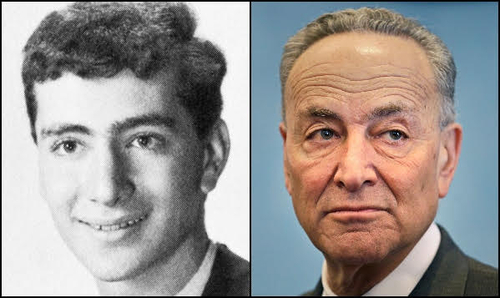 Charles Schumer, then and now. |
That is our dismal legacy.
Mr. Pipes (DanielPipes.org, @DanielPipes) is the founder of Campus Watch. ©2021. All rights reserved.
 Harry Austryn Wolfson (1887–1974) |
I learned from such masters of their craft as William Alfred, John Clive, Carlton Coon, Kenneth Dike, John King Fairbank, Elliot Forbes, Owen Gingerich, Stuart Hughes, Edward Keenan, Angeliki Laiou, Muhsin Mahdi, Harvey Mansfield, Amos Perlmutter, Edwin Reischauer, Abdulhamid Sabra, Judith Shklar, Shlomo Sternberg, Donald Stone, George Wald, Michael Walzer, Robert Wolfe, and Harry Austryn Wolfson.
(2) Philadelphia-area members of the Harvard'71 class meet occasionally and when they do, it's a "WCE lunch" event, reveling in Pusey's disparagement.
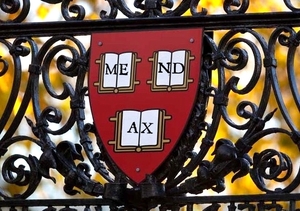 (3) George Moore has sent me his version of the Harvard shield, even tougher than mine - but less comprehensible to non-Latin initiates (mendax means "deceitful").
(3) George Moore has sent me his version of the Harvard shield, even tougher than mine - but less comprehensible to non-Latin initiates (mendax means "deceitful").
June 23, 2021 update: Leonard J. Lehrman, my freshman-year near-roommate and music composer, has written an ode to the Harvard class of 1971, "Love Is Revolution/Worst Class Ever?"
June 8, 2022 update: I attended my class' 2½-day delayed 50th reunion. Although braced to be shunned for the criticism above, I was not. I had a good time, as I explain in a tweet:
I just spent 2½ days immersed in my @Harvard College 50th reunion (well, 51st, because delayed). It was a thoroughly—and somewhat unexpectedly—good time. Little politics, plenty of small talk, some profound life-assessing conversations.
But my critique of today's Harvard remains pic.twitter.com/ZWATGuqN6b
— Daniel Pipes دانيال بايبس
Some observations on my class as I found it this past weekend:
- It remains as ferociously leftist as ever in politics. But in their own lives, they are strikingly conservative.
 According to a class survey, 84 percent are Democratic-minded and 10 percent are Republican-minded. |
- It has been successful by any measure (marriage, children, grandchildren, wealth, health) but not particularly distinguished.
- Over 10 percent of the class is deceased, a much higher number than I would have expected.
- I spent an hour with Charles Schumer at breakfast, finding him impressively skilled and smooth. I can see how his caucus chose him as its leader.
- After a lapse of 51 years, I found most of my classmates quite unchanged, with the boring ones still boring, the excitable ones still excitable, the deep ones even deeper, and so on.
Jan. 2, 2024 update: In contrast to the 84-10 percentages noted just above, most of our generation became conservative.
"Boomers are more Republican than previous generations were at the same age. It's a stunning evolution for a generation that was very liberal in their youth & it creates a sizable generation gap between #Boomers & the more liberal Millennials & Gen Z'ers."https://t.co/iAi8c0rggD
— Daniel Pipes دانيال بايبس 🇺🇦 (@DanielPipes) January 2, 2024
Apr. 15, 2024 update: As Harvard fights the Trump administration, the memes are getting nastier. Here's one:
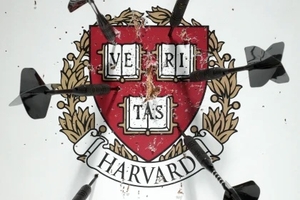
July 18, 2025 update: And another:
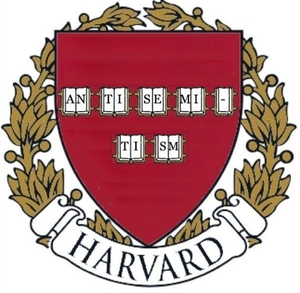
Nov 12, 2025 update: Warren H. Cohn has written a stinging indictment of Charles Schumer, one which over a half-century's observation finds sadly accurate.
Schumer has spent years appeasing the far left; the same activists and politicians who slander Israel, excuse Hamas and normalize antisemitism in America's streets and classrooms. He thought that by bending to them, he could keep his power. Instead, they've decided he's the next one to break. He should have known better. ...
Schumer could have been a giant. He could have been the Jewish statesman who led with courage in a moment of moral chaos. Instead, he chose to be a poll-tested politician, a man so afraid of losing his base that he lost his soul. He didn't stand with his people when the lies started. He didn't lead when the hate mobs took over. And he didn't protect his country when it needed moral clarity over partisan survival. ...
Schumer chose party over principle, and party over his people. Now, his party has chosen to devour him.
Nov 13, 2025 update: Matthew Continetti's article on "The Tragedy of Chuck Schumer" ends with "Nobody likes a Schumer." He accurately portrays Schumer as a careerist with no convictions who has mastered the art of triangulation.
